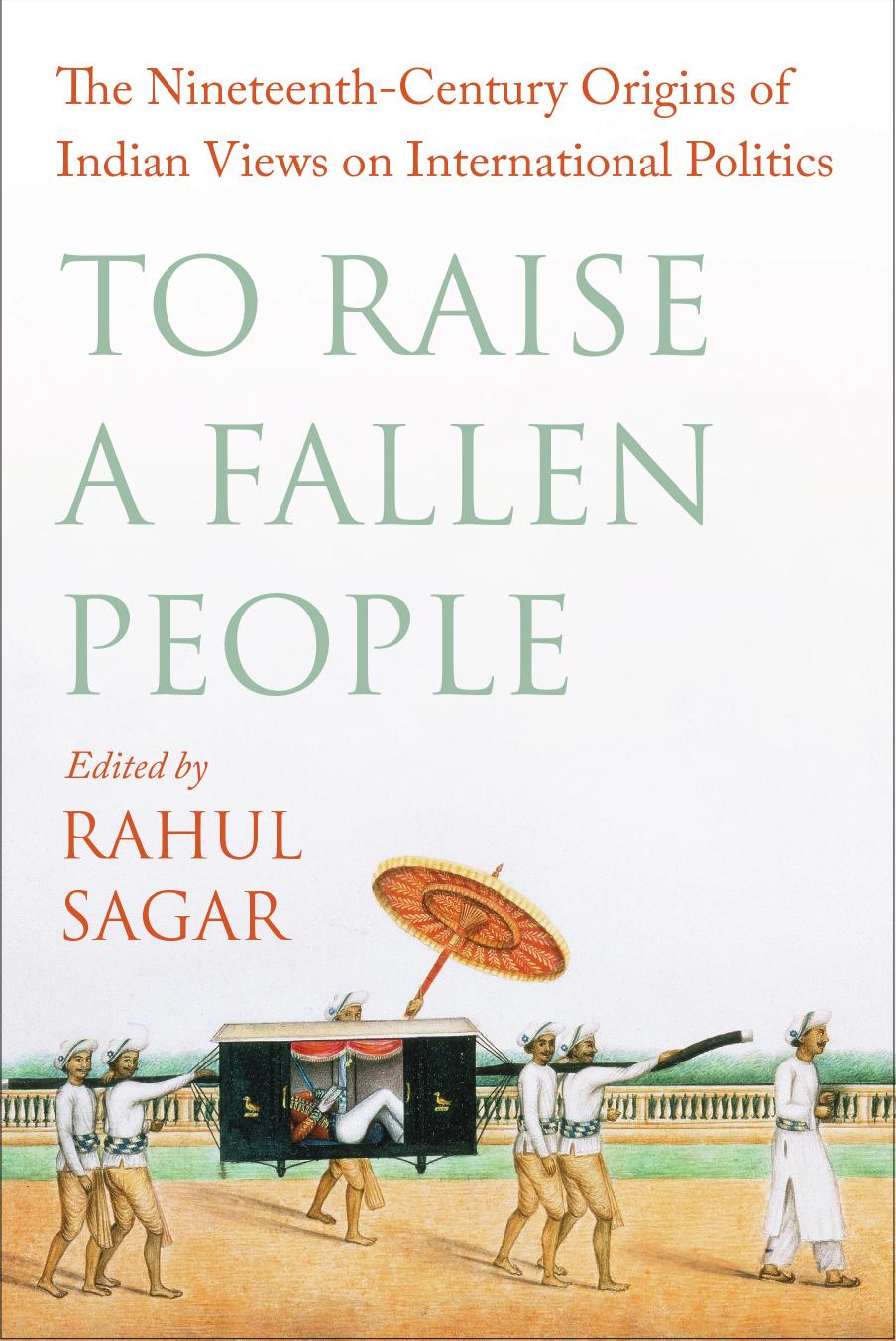To Raise a Fallen People: The Nineteenth-Century Origins of Indian Views on International Politics by Rahul Sagar

Author:Rahul Sagar [Sagar, Rahul]
Language: eng
Format: epub, pdf
Tags: History, Asia, South, General, Political Science, Colonialism & Post-Colonialism, Modern, 19th Century
ISBN: 9780231556484
Google: NbdbEAAAQBAJ
Publisher: ColumbiaUP
Published: 2022-07-05T20:41:17+00:00
INDIAN MILITARY EXPENDITURE, 1891
Dinshaw E. Wacha
⦠In my speech at the First Congress, I submitted ample evidence of the growth of the military expenditure as culled from official Blue Books and dispatches. So I will not detain you by reciting them here. Suffice to say that, between 1864 and 1885, they had increased by five crores. Since the days of the Second Afghan War, of unhappy memory, there has been no limit to that growth. If you ask me the reason of it, I will say that it is the imperial policy of Great Britain, which is annually entailing on the poor people of India sacrifices which they are absolutely unable to bear, but which they do bear, all the same, silently, and with a sullen discontent. It is the policy of England in her relations with the politics of Central and Eastern Europeâthe policy which leads to complications now and again with Turkey and Russia, and other great European Powersâwhich unhappily leads to military activity or military âpreparedness,â so called in this country, entailing crores of wasteful expenditure.â¦
The Russian game is to gain as far as possible a footing on the banks of the Bosphorus, while England tries to thwart her in that desire. As a consequence, the former tries, whenever occasion offers, to threaten England in Central Asia. But, while Russia idly threatens us, the military tax eaters at Shimla, who eagerly pant for promotions, decorations, and kudos besides, do not leave a stone unturned, under one pretext or another, to push forward what is euphemistically called the âscientific frontierââa visionary frontier leading nowhere, but ever plunging the country into greater and greater financial embarrassments. Scares are manufactured which could never be substantiated, and while this sort of manufactured panic is designedly created among us, they push on new schemes having for their object nothing but the conquest of wild border tribes, the despoiling them of their territories, the bribing of the recalcitrant with British rupees, and so forth. They thus carry on a warfare of external aggression under the hollow pretense of defending India against so-called attacks from without. From what I have stated you will no doubt be able to understand the import of the intense activity going on on our North-Western frontier borders since 1885, and the rapid construction of forts, bridges, and so-called strategical railways. There is a whole history of these scares and scientific frontiers, but which it is impossible for me to unfold before you on this occasion.
So I now pass on to the question of actual expenditure itself since 1885. That year was indeed a calamitous year for India. For it was the year which witnessed the forcible seizure of Upper Burma, which brought an additional step in the peerage to the Earl of Dufferin, the then Viceroy. At the First Congress we deprecated that seizure as iniquitous and unrighteous; and if you read between the lines all that has been stated in the Blue Books on this conquest, you will be fully convinced that the Congress was justified in condemning those proceedings.
Download
To Raise a Fallen People: The Nineteenth-Century Origins of Indian Views on International Politics by Rahul Sagar.pdf
This site does not store any files on its server. We only index and link to content provided by other sites. Please contact the content providers to delete copyright contents if any and email us, we'll remove relevant links or contents immediately.
The Secret History by Donna Tartt(19035)
The Social Justice Warrior Handbook by Lisa De Pasquale(12183)
Thirteen Reasons Why by Jay Asher(8885)
This Is How You Lose Her by Junot Diaz(6873)
Weapons of Math Destruction by Cathy O'Neil(6261)
Zero to One by Peter Thiel(5784)
Beartown by Fredrik Backman(5734)
The Myth of the Strong Leader by Archie Brown(5495)
The Fire Next Time by James Baldwin(5426)
How Democracies Die by Steven Levitsky & Daniel Ziblatt(5211)
Promise Me, Dad by Joe Biden(5141)
Stone's Rules by Roger Stone(5080)
A Higher Loyalty: Truth, Lies, and Leadership by James Comey(4947)
100 Deadly Skills by Clint Emerson(4915)
Rise and Kill First by Ronen Bergman(4776)
Secrecy World by Jake Bernstein(4739)
The David Icke Guide to the Global Conspiracy (and how to end it) by David Icke(4697)
The Farm by Tom Rob Smith(4501)
The Doomsday Machine by Daniel Ellsberg(4482)
